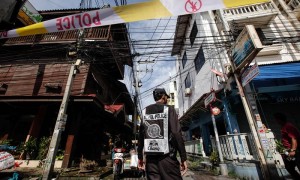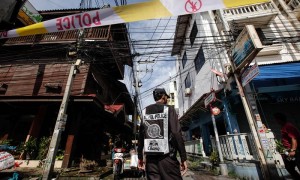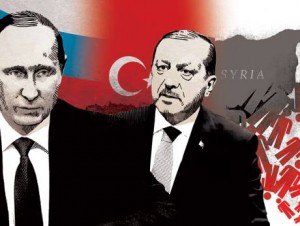- Coordinated bomb and arson incidents in southern Thailand, home to an insurgency, could signal new phase of confrontation
The Guardian
Thitinan Pongsudhirak
 The coordinated bomb and arson attacks across Thailand’s southern provinces may signal a new phase of confrontation and brinkmanship, following the vote in favour of a military-backed constitution in a referendum on Sunday.
The coordinated bomb and arson attacks across Thailand’s southern provinces may signal a new phase of confrontation and brinkmanship, following the vote in favour of a military-backed constitution in a referendum on Sunday.
Such incidents are not unheard of in Thailand. Violence and mayhem is an almost daily occurrence in the three southernmost provinces of Yala, Pattani and Narathiwat, where a deadly Malay-Muslim insurgency pushing for greater administrative autonomy from Bangkok has raged for more than a decade.
However, with few exceptions, the insurgents have operated in these stronghold provinces, where they can perpetrate violence at will, and have not targeted tourists. If they had wanted to send a message to the junta, the insurgents would more likely have attacked Bangkok, or major cities such as Chiang Mai or Phuket City.
Thailand’s deadliest bomb blast, the attack on the Erawan shrine in August 2015 that killed 20 people, has been linked to the deportation of Muslim Uighur migrants to China and seen as a one-off.
External militant groups such as Islamic State have been unable to make inroads into the insurgency, which suggests that international terrorism is not to blame for the attacks late on Thursday and Friday.
Domestic political unrest, a major source of small-scale bomb blasts over the past decade, since the ousting of the former prime minister Thaksin Shinawatra, is therefore the most likely explanation. As the Shinawatra family and its political machinery have fought back against the generals, the resultant red versus yellow divide and accompanying street demonstrations by both sides have been marred by periodic gunshots and small explosions.
What sets apart the latest attacks is their timing and selected targets. The violence has come within a week of the passage of a constitution that vests substantial power and authority in a 250-member senate appointed by the junta to keep elected representatives in check. Against a backdrop of stifled media and a ban on political gatherings, and with a 59% turnout (61% in favour), Thai voters endorsed a constitution that will set the political direction for the coming years.
The anti-junta forces who lost out in the referendum have an incentive to show bold defiance and lay down a challenge against the regime.
Furthermore, the tourist resorts that have been targeted, including major destinations such as Phuket island and Hua Hin, are located in the southern provinces that voted overwhelmingly for the pro-military charter. Tourism is a key part of the Thai economy. Targeting these destinations discredits the military’s vaunted ability to maintain law and order, and dampens economic prospects under the junta’s rule.
Finally, the bombs went off around the 84th birthday celebrations of Queen Sirikit. Given that the junta has declared defending the monarchy to be its priority, the timing of the attacks is unlikely to be coincidental.




